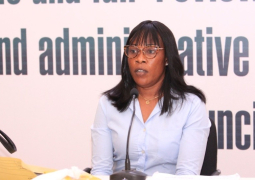
Speaking to lawmakers at the National Assembly on Wednesday, Minister Jobe said the government decided to forego revenue in excess of one hundred and eighty million dalasis (D180 million) last month to maintain the fuel price in order to cushion inflation and economic constraints in The Gambia.
“This means the government did not receive that money, to maintain the price of fuel,” he said. “If we had received that, the price would have gone up.”
He also said: “We have seen the plague price of fuel go up, and it is going up because of the reduction in production that the Saudi Arabians have done, and that is having an impact on the international price of fuel.”
He added that the government decided to reduce the price to relieve the economic burden of Gambians.
Mr Jobe further stated that “The Gambia has the cheapest fuel and gasoil” among five countries in the sub-region.
“In September, petrol price in The Gambia was $1.197; in Senegal it was $1.532, in Mali it was $1.42, in Guinea Conakry it was $1.4, in Serra Leone it was $1.335, and in Ghana it was $1.2,” he pointed out.
“With gasoil, in Gambia the price was $1.141, per litre ; in Senegal $1.61, in Mali $1.41, in Guinea Conakry $1.39, in Serra Leone $1.335, and in Ghana $1.74.
“And from this we have done our analysis from May to June, July, August and September and The Gambia has been the cheapest.”
The minister further revealed that “according to NAWEC’s data, out of the total energy that was supplied in 2022, 22.7% was total energy loss recorded”.
“This does not mean that the losses was electricity theft; NAWEC reported that 10% of the total loss were assumed to be technical losses in any network and the record based on the estimate 12.5% as non-technical losses.”
He added that cases of electricity theft could be captured under non-technical losses because it included “meters that are bypassed, meter tampering, and customers that are not billed, which are electricity theft”. “Faulty meters,” he however noted, “are non-electricity theft.”
The Minister further stated: “My ministry has requested NAWEC to develop a loss reduction and control strategy which should include the establishment of a result-oriented mobile brigade that will aggressively pursue electricity theft.”




